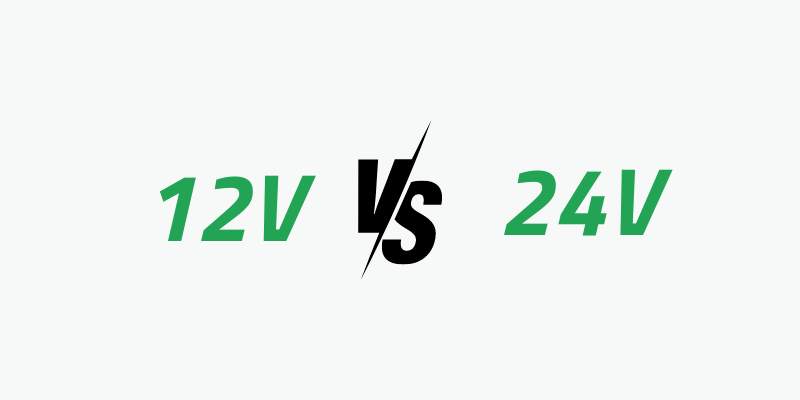عند العمل مع أنظمة طاقة التيار المستمر للمركبات الترفيهية أو القوارب أو التطبيقات خارج الشبكة، فإن القرار الرئيسي هو الاختيار بين ذلك 12 فولت و 24 فولت. سوف تستكشف هذه المقالة الاختلافات بين أنظمة البطاريات 12 فولت و24 فولت. دعونا نتعمق!
فهم الأساسيات
لفهم البطاريات، يجب علينا أولاً فهم الفولت أو الجهد.
ما هو الجهد؟
الجهد هو الضغط الناتج عن مصدر الطاقة الذي يدفع الإلكترونات المشحونة (التيار) عبر الدائرة، مما يتيح القيام بعمل مثل إضاءة المصباح.
باختصار، الجهد يساوي الضغط ويقاس بالفولت (V). يُكرّم هذا المصطلح عالم الفيزياء الإيطالي أليساندرو فولتا، مخترع الكومة الفولتية، التي أدت إلى البطاريات الحديثة.
أنظمة 12 فولت
تستخدم معظم السيارات والمركبات الترفيهية والقوارب نظامًا كهربائيًا بجهد 12 فولت، حيث تعمل معظم المكونات بجهد 12 فولت.
توفر بطارية 12 فولت 12 فولتًا تحت الحمل الاسمي وتعمل على تشغيل المكونات مثل أنظمة التشغيل والإضاءة والإشعال. هذا التصنيف اسمي. قد يختلف الجهد الفعلي قليلاً بناءً على حالة الشحن والأحمال.
أنظمة 24 فولت
نحن نستخدم أنظمة بطاريات 24 فولت في الشاحنات والحافلات الأكبر حجمًا نظرًا لاحتياجات الطاقة العالية وتشغيل الكابلات الطويلة. كما أنها شائعة في القوارب الكبيرة، وبعض المركبات الترفيهية ذات الأنظمة الشمسية، ومحركات التصيد لقوارب الصيد.
ينتج نظام 24 فولت 24 فولت تحت الحمل الاسمي. يمكنك إنشاء نظام طاقة 24 فولت عن طريق شراء بطارية 24 فولت أو استخدام بطاريتين 12 فولت متسلسلة.
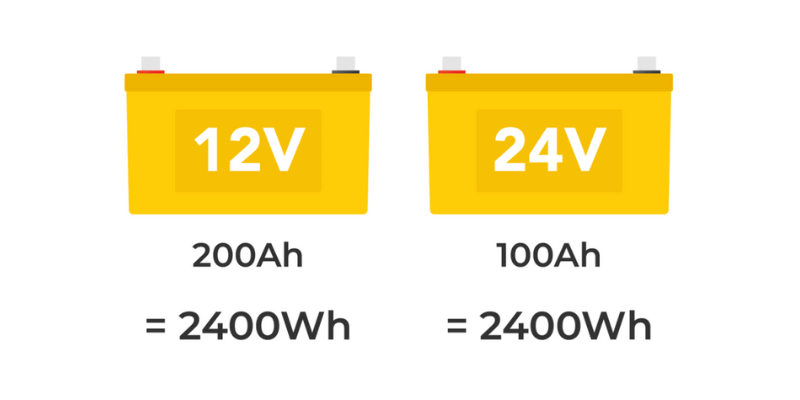
إنشاء نظام 24 فولت
الطريقة الأكثر شيوعًا لبناء نظام 24 فولت هي توصيل البطاريات في السلسلة. وهذا يعني أن الجهد الإجمالي يساوي مجموع البطاريات الفردية’ الفولتية.
على سبيل المثال، توفر بطاريتين 12 فولت موصلتين على التوالي 24 فولت (2 × 12 فولت).
لتوصيل بطاريتين بقوة 12 فولت، قم بتوصيل الطرف الموجب للبطارية الأولى بالطرف السالب للبطارية الثانية. تتصل المحطات المتبقية بالمكون الخاص بك كما لو كنت تستخدم بطارية واحدة. يمكنك أيضًا استخدام أربع بطاريات 6 فولت للحصول على نفس النتيجة.
النظر في مصباح يدوي مع أربعة “ج” حجم البطاريات المتصلة على التوالي؛ كل منها 1.5 فولت، بإجمالي 6 فولت عند دمجها.
تتكون معظم البطاريات التي تزيد عن 2 فولت من خلايا متعددة متصلة بهذه الطريقة، بما في ذلك تلك المستخدمة في أجهزة كشف الدخان ذات الخلايا المرئية إذا تم فتحها.
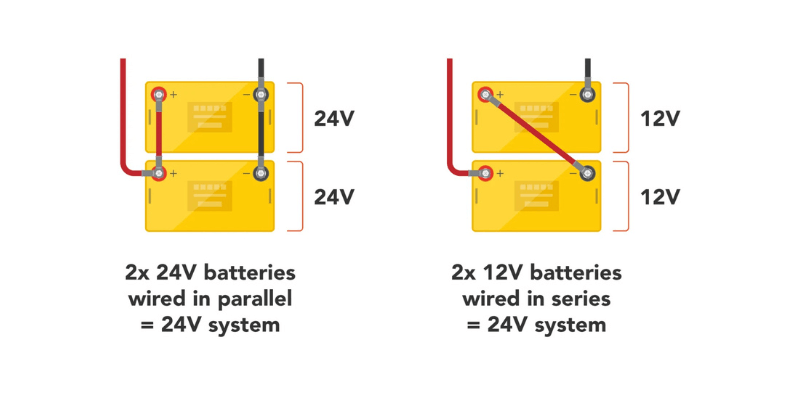
مقارنة 12 فولت مقابل 24 فولت – فوائد
تكشف مقارنة أنظمة 12 فولت و24 فولت عن إيجابيات وسلبيات كل نوع. وهنا الفوائد:
فوائد نظام 12 فولت
- قابلية النقل: الميزة الرئيسية لأنظمة البطاريات 12 فولت هي تصميمها خفيف الوزن وصغير الحجم.
- الملاءمة: إنها متوافقة مع العديد من الأجهزة التي تعمل بقوة 12 فولت، مما يجعلها متعددة الاستخدامات وسهلة الدمج في الإعدادات المختلفة.
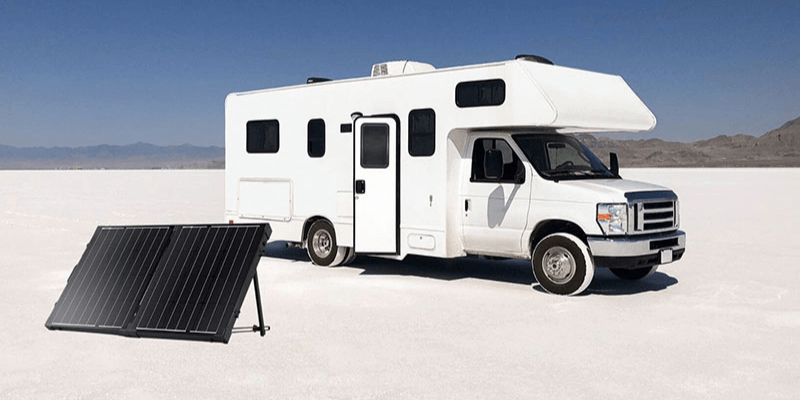
فوائد نظام 24 فولت
- زيادة خرج الطاقة: توفر أنظمة 24 فولت طاقة أكبر للأجهزة مقارنة بأنظمة 12 فولت، مما يعزز الأداء.
- الكفاءة المحسنة: تعمل أنظمة 24 فولت على تحسين نقل الطاقة وتقليل فقدان الطاقة، مما يعزز كفاءة النظام بشكل عام.
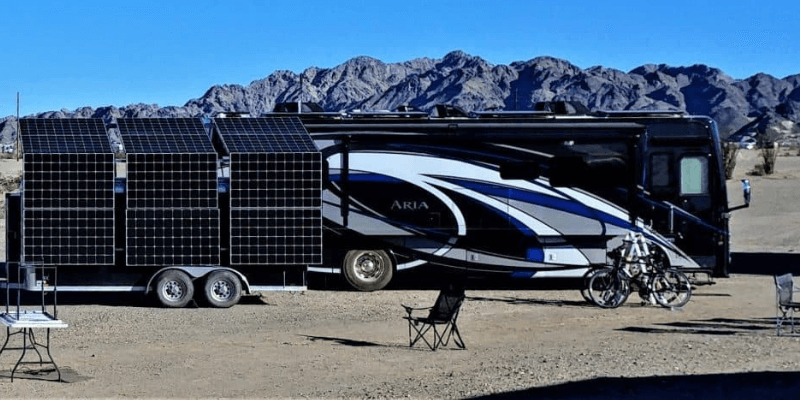
مقارنة 12 فولت مقابل 24 فولت – العيوب
يتمتع كل من نظامي 12 فولت و24 فولت بإيجابيات وسلبيات، حيث غالبًا ما تكون مزايا أحدهما عيوبًا للآخر.
عيوب نظام 12 فولت
- متطلبات الأسلاك الكبيرة: تحتاج أنظمة 12 فولت إلى أسلاك أكثر سمكًا لتطبيقات الطاقة العالية بسبب التيار العالي.
- نقل الطاقة غير الفعال: تؤدي زيادة التيار في أنظمة 12 فولت إلى خسائر مقاومة أكبر، مما يقلل الكفاءة مقارنة بأنظمة 24 فولت.
- زيادة التكلفة: تزيد الأسلاك السميكة من التكلفة الإجمالية لنظام 12 فولت.
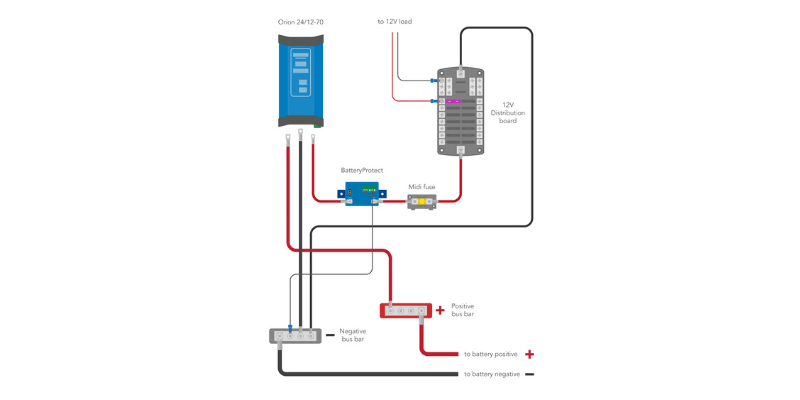
عيوب نظام 24 فولت
- مشكلات التوافق: توفر أنظمة 24 فولت المزيد من الطاقة، ولكن التوافق مع الأجهزة الموجودة بجهد 12 فولت قد يتطلب محولات أو محولات.
- تعقيد التركيب والصيانة: غالبًا ما يكون تركيب أنظمة 24 فولت وصيانتها أكثر تعقيدًا من أنظمة 12 فولت، مما يتطلب تخطيطًا دقيقًا ومعرفة متخصصة لتحقيق الأداء الوظيفي السليم والسلامة.
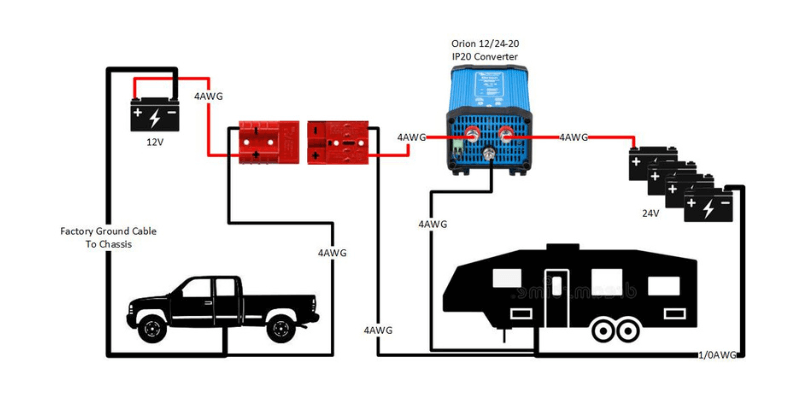
الاختيار بين أنظمة 12 فولت و24 فولت
عند تصميم نظام بطارية التيار المستمر، حدد احتياجاتك من الطاقة بناءً على الأجهزة التي ستستخدمها. يتم قياس استهلاك طاقة الجهاز بالواط.
إرشادات اختيار النظام
- أنظمة 12 فولت: مناسبة لمتطلبات الطاقة أقل من 3000 واط
- أنظمة 24 فولت: يوصى بها للأنظمة التي تتطلب طاقة تتجاوز 3000 واط، خاصة عند توليد طاقة شمسية كبيرة.
فوائد 24V DC للطاقة الشمسية
- توافق الجهد العالي: تدعم العديد من وحدات التحكم بالشحن بالطاقة الشمسية DC MPPT جهد لوحة 24 فولت، مما يعزز كفاءة توليد الطاقة.
- تقليل عدد وحدات التحكم: يمكن لنظام 24 فولت خفض عدد وحدات التحكم في الشحن بالطاقة الشمسية المطلوبة إلى النصف، مما يوفر التكاليف ويبسط عملية الإعداد.
- كفاءة محسنة: تعمل أنظمة 24 فولت عادةً بكفاءة أكبر من أنظمة 12 فولت، خاصة في التركيبات الأكبر حجمًا.
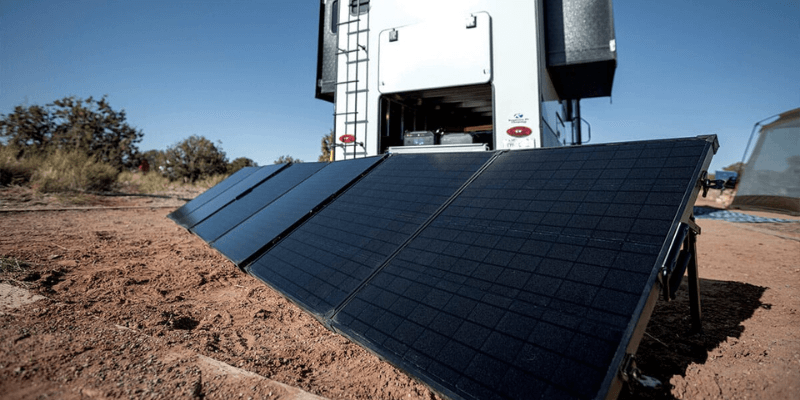
12 فولت أم 24 فولت، أيهما مناسب لي؟
اختيار الخيار الأفضل ليس دائمًا أمرًا سهلاً بسبب عوامل مختلفة.
والآن بعد أن فهمنا هذه الأنظمة بشكل أفضل، فإنها تبدو أقل ترويعا.
سواء اخترت نظام 12 فولت أو 24 فولت، يمكنك تقييم احتياجاتك واتخاذ قرار مستنير.
الأسئلة الشائعة
ماذا يحدث إذا قمت بتطبيق 24 فولت على نظام 12 فولت؟
يمكن أن تتسبب البطاريات ذات الجهد العالي في حدوث زيادات في الطاقة تؤدي إلى تلف المكونات الإلكترونية، مما يؤدي إلى سلوك غير منتظم أو فشل لوحات التحكم والمفاتيح.
هل يمكنني تحويل 12 فولت إلى 24 فولت؟
نعم، يمكنك تحويل نظام 12 فولت إلى نظام 24 فولت عن طريق إضافة بطارية 12 فولت ثانية وتوصيلها على التوالي، مما يضاعف الجهد الناتج.
هل يمكنني تشغيل 24 فولت و12 فولت على نفس البطارية؟
لا، لا يمكنك تشغيل 24 فولت و12 فولت من نفس البطارية. تحتوي البطارية على معدل جهد محدد، وقد يؤدي سحب كلا الجهدين إلى إتلاف البطارية أو الأجهزة المتصلة. للحصول على كلا الجهدين، استخدم بطاريات منفصلة أو محول جهد.


